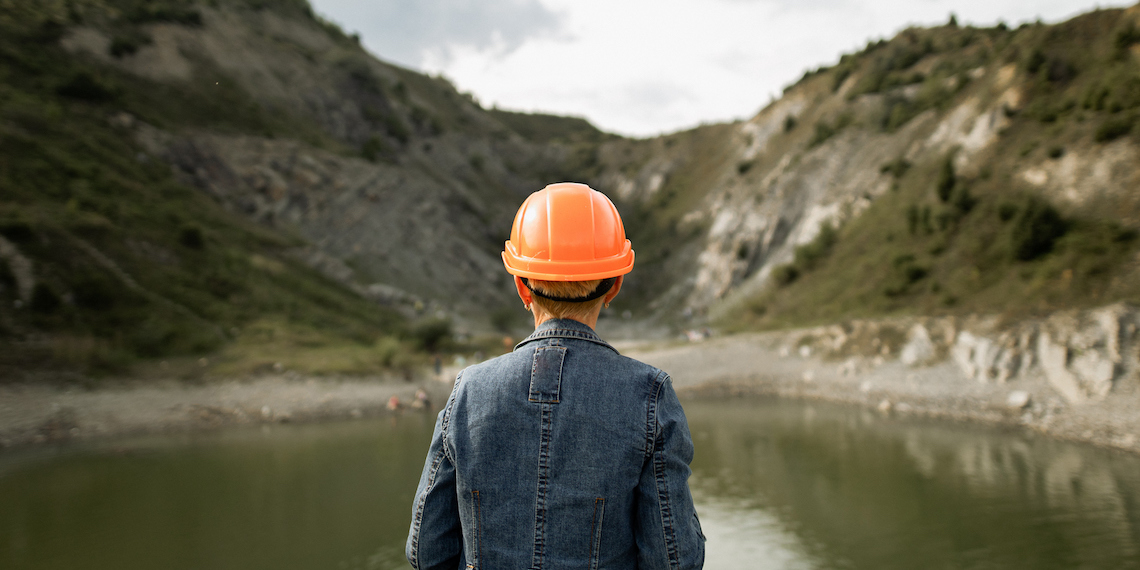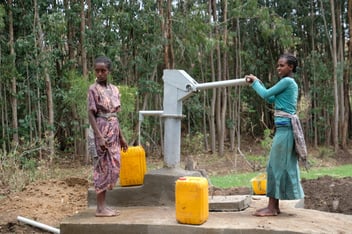Empowering women to start and continue a water industry career

In Australia, just 13% of engineers are women, while, in New Zealand, the figure is almost identical at 14%.
It is a problem that has not gone unnoticed, and on Day Two of Ozwater’23 delegates heard about actions taken by two water companies to implement long-term change to improve women’s participation in the water sector.
Speaking as part of the “Advances in People, Culture, Diversity, Inclusion and Equity” stream, representatives from Stantec and Jacobs New Zealand shared positive examples of ways their companies had sought to attract more women into their profession – and to encourage them to stick around once they had begun their career.
“One of the biggest worries for me is that one in three women have gone to the effort … they’ve [studied] engineering, but they are leaving because they don't feel they belong in the industry,” said Dr Becky Macdonald, Regional Solutions Director for Water Infrastructure at Jacobs NZ.
And, as Jacobs NZ Section Leader for Water Infrastructure Kate Simmonds pointed out, that should be of particular concern to everyone, because engineering in both Australia and New Zealand is experiencing a critical skills shortage.
“We're not tapping into a significant part of our workforce,” she said.
“Not only we're not tapping into that part of our workforce, of the very few that are in the workforce, a third of them are leaving,”
Shortfalls and successes
Macdonald and Simmonds acknowledged that Jacobs NZ was not perfect – they pointed out that while their leadership team has achieved parity in gender representation, their technical leadership team was still male-dominated.
But acknowledging the successes, as well as their shortfalls, was an important part of improving.
“At Jacobs, we have made a deliberate public commitment to diversity,” MacDonald said.
“We are stating to everybody what our goals are, so that we can be held accountable – not just by ourselves, but by the people we work with. We're beginning to see this reflected across our business.”
Actions the business had taken include acknowledgement of unconscious bias – and taking conscious action to address it – and embracing truly flexible working.
“Flexible working really does make a difference to how people can feel they belong,” Macdonald said.
“If you are going home to do the school run, to pick your kids up to take them swimming – doing that in the confidence that you have the support and the approval to do your work later in the day or when it suits you is really valuable to creating that sense of belonging.”
The company also has groups promoting diversity, such as its Together Beyond platform and the Everyday Respect campaign, which seeks to engage people at the company throughout the world to consider what respect in the workplace means for them.
The next generation
While Macdonald and Simmonds discussed their efforts to make a difference in the present, Karina Dervidis, a Senior Water Planning Engineer at Stantec, had her eye on the future.
Drawing on research that showed that one reason women do not have careers in engineering is that, growing up, they did not see it as a career suitable for them.
“For parents, they generally saw girls as being less confident than boys by a large difference … in the STEM subjects. The study also found that parents generally found it easier to engage boys in STEM subjects than girls,” she said.
“Girls also generally perceive themselves as not being very good in science and engineering subjects, considering them too hard.”
Dervidis relates to these findings; growing up, she had no idea she would one day study engineering, and even began her career in the publishing industry.
“I didn't know of any female engineers; I didn't have those role models,” she said.
“I thought that engineering was definitely a gender-based career for boys who were good at maths and pulling things apart.”
To help address this knowledge gap, a Stantec group called Women in STEM, which formed last year and comprises 20 women employed at the company, created a one-week work experience program that would give girls in years 10, 11 and 12 the opportunity to experience a career in the water industry.
“Some work groups – like our the water, sustainability and environmental teams – put together a mock project that spanned across different disciplines, which was a proposed new building at a nearby park. That also gave us the opportunity to carry out a site visit to challenge the students,” she said.
“To challenge the students at the end of the week, we asked them to prepare a presentation on their mock projects – and also their experience overall – which a number of stakeholders attended.”
One year in, the program appears to have been a success.
“We found that the students were exceptional at picking up new concepts and especially software, so I think, for the next round of work experience we will give them more challenging activities,” she said.
“The use of real life projects was also really beneficial: we had one student in the electrical team who worked on a project that was directly related to the school where she went. Her experience was that much more enhanced because she was working with something that she was already familiar with.”
Stantec is now looking to build on this success by engaging students in other ways, such as workshops at local high schools that encourage engineering careers, a school holidays work experience program, and developing cadetships and internships.

